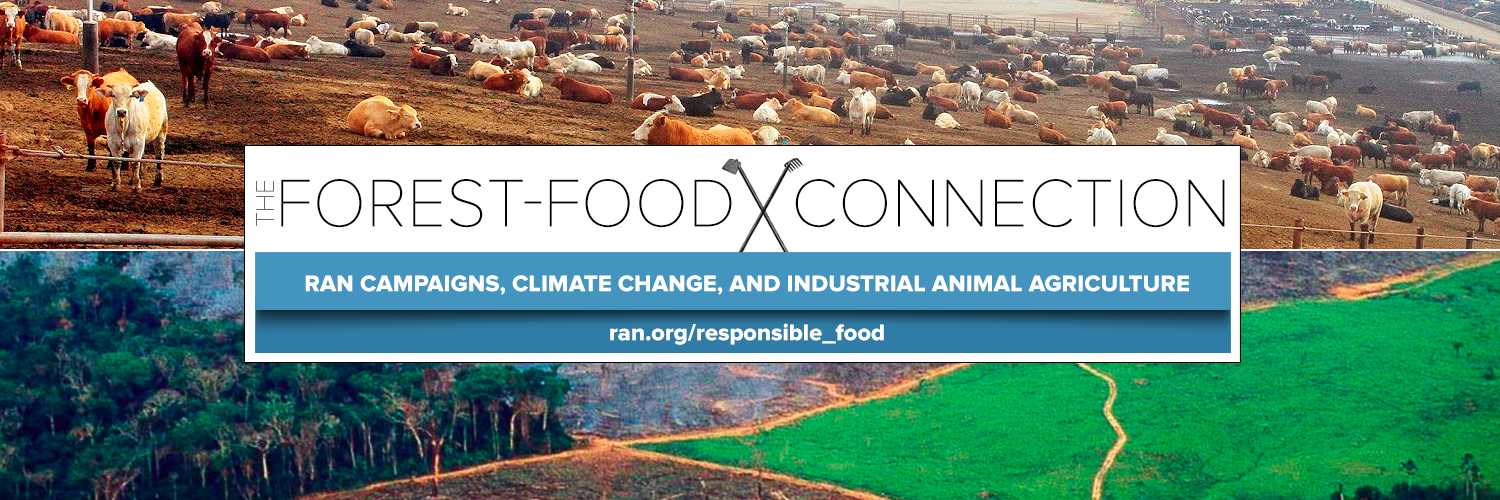Agriculture is a major contributor to water scarcity and water contamination in many regions of the world. Agriculture in general accounts for 92% of the freshwater footprint of humanity.[90] In a recent global study, global water research authorities Mekonnen and Hoekstra show that animal products have a large water footprint relative to crop products and also account for some 29% of water pollution.[91] The major sources of water pollution are from animal wastes, antibiotics and hormones, chemicals from tanneries, fertilizers and pesticides used for feed crops, and sediments from eroded pastures.[92]
Talking about water issues, what about California’s current drought? In case you missed it, it’s unprecedented. Why is Governor Brown restricting individual and municipal water use, but giving a free pass to the water-intensive and polluting factory farms of California?
California produces more than 12 percent of the U.S. food supply. In other words, roughly one dinner in eight is grown entirely in California.[93]
California is home to over 10 million food production animals, including dairy livestock, cows, pigs, chickens and eggs. Not surprisingly, the vast majority of these animals live in factory farms, which require an unbelievable amount of water.[94] As of 2012 (the most recent year of reported data), almost one third of all the dairy cows in the country were located in California. It takes about 150 million gallons of water each day to maintain the dairy cows on factory farms in California. This estimate is just for the drinking water necessary to raise a cow and the water to maintain the facility itself.[95] This doesn’t include the water it takes to grow the food the cows eat, which in California includes a lot of alfalfa. Alfalfa production uses more water than any single crop in California—15% of our state’s irrigation water.[96]
Get this: cows in California drink 4 more times more water than the state’s 39 million people. On average humans drink less than one gallon of water per day, whereas a cow drinks 23 gallons per day—and we have 5.5 million of them in California alone.[97] Therefore, based on individual consumption and not the additional billions of gallons of fresh water to irrigate the feed for livestock, wash excrement off concrete floors, and clean blood and grease from equipment used in the butchering process, cows in California drink more than 3 times as much water every day than Californians.
Animals use far more water than the production of plants.[98] It takes nearly 1,850 gallons of water to produce a pound of steak, by comparison it only takes about 300 gallons of water to produce a pound of tofu.[99] These figures for beef take into consideration not just the water that the cattle drink, but the water needed to grow the plants that the cattle eat.
Beyond this extensive water use, factory farms produce a massive amount of waste. Livestock in the U.S. create hundreds of millions of tons of manure, most of which is untreated and sprayed back onto crops or left in manure pits (both of which cause huge air pollution problems for surrounding communities). This has polluted 35,000 miles of US rivers in 22 states and contaminated groundwater in 17 states, making many rivers and streams virtually uninhabitable for freshwater species.[100]
In the USA alone, operations which confine livestock and poultry animals generate about 500 million tonnes of manure annually, which is three times the amount of human sanitary waste produced annually.[101] Insufficient amounts of land on which to dispose of the manure results in the runoff and leaching of waste into and the contamination of surface and groundwater.[102] In the Central Valley, the center of the state’s dairy industry, where half of the drinking water comes from groundwater, this means that local wells have unsafe levels of toxic chemicals contaminating the drinking water.[103]
Here’s a dirty little secret: Factory farmed beef accounts for almost half––yep, that’s right, 50%––of California’s total water consumption,[104] and yet all we hear about is the need for consumer action like shorter showers, no flushing, no glass of water in restaurants. This is ironic given that the water used for industrial-scale beef absolutely dwarfs what consumers could save in a million years.[105]
We can’t fix big problems like the California drought or climate change without tackling factory farms. Asking individuals to cut their water use without putting serious restrictions on Big Ag misses the mark by a long shot.
[92] http://www.environmentmagazine.org/Archives/Back%20Issues/2015/May-June%202015/meat_abstract.html
http://www.motherjones.com/files/2agovstat10_web-1.pdf
[93] Food and Water Watch June 6 email
[94] Food and Water Watch June 6 email
[95] Here’s the Real Problem with Almonds, Mother Jones, April 15, 2015.
[96] http://www.alternet.org/cows-rice-fields-and-big-agriculture-consumes-well-over-90-californias-water
[97] http://www.tandfonline.com/doi/full/10.1080/00139157.2015.1025644#abstract
[98] http://www.motherjones.com/files/2agovstat10_web-1.pdf
[100] Environmental Protection Agency, 2009
[101] http://na.unep.net/geas/getUNEPPageWithArticleIDScript.php?article_id=92
[102] What’s in the water? Food & Water Watch, February 24, 2011.
[103] http://pacinst.org/wp-content/uploads/2013/02/ca_ftprint_full_report3.pdf












